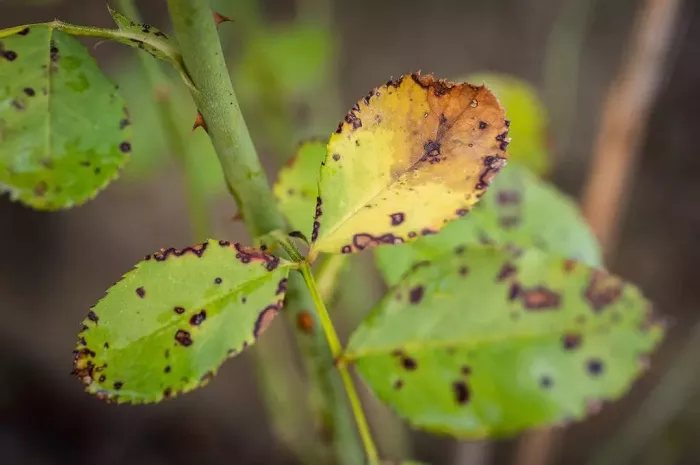Roses are a beautiful addition to any garden, but they require careful attention to avoid the damaging black spot disease. This fungal infection, which appears as dark spots or patches on rose leaves, is a common threat during the blooming season from late spring to early autumn.
Though not directly fatal to roses, black spot disease can cause significant damage. It leads to yellowing leaves, loss of foliage, and premature cessation of flowering, weakening the plant and making it more vulnerable to other diseases and pests. Once the fungus contaminates the soil, it becomes difficult to eradicate. However, with proper care, it is possible to prevent or manage outbreaks effectively.
Preventive Measures
According to David Domoney, a well-known horticulturist and expert on the TV show “Love Your Garden,” there is no cure for black spot disease, but several steps can be taken to minimize its impact. He advises:
Proper Plant Spacing: Ensure ample airflow between rose plants to prevent the buildup of excess moisture.
Watering Practices: Water roses at the base in the morning to allow leaves to dry out quickly, reducing the risk of disease spread.
Pruning: Prune roses annually in late winter or early spring to reduce the likelihood of fungal diseases. Avoid summer pruning, as it can stress the plant and increase vulnerability to disease.
Early Detection and Management
Early detection of black spot disease is crucial. Regularly inspect your roses for signs of infection. If infected leaves are spotted in the spring, David suggests removing them to minimize the spread of the disease. However, this should only be done if you are certain of the diagnosis, as removing leaves can hinder the plant’s growth.
Natural and Chemical Remedies
While a baking soda solution is a common natural remedy for rose ailments, it may not be effective against black spot disease. In such cases, seeking professional advice from a garden center or using fungicides is recommended. David mentions that sulfur-based chemical sprays are available at most garden centers. It is essential to start spraying early in the season and apply every four to six weeks.
With these tips, gardeners can take proactive steps to protect their roses from black spot disease. Regular monitoring, proper care, and timely intervention are key to maintaining healthy and beautiful roses. For specialist advice, local garden centers are a valuable resource.


